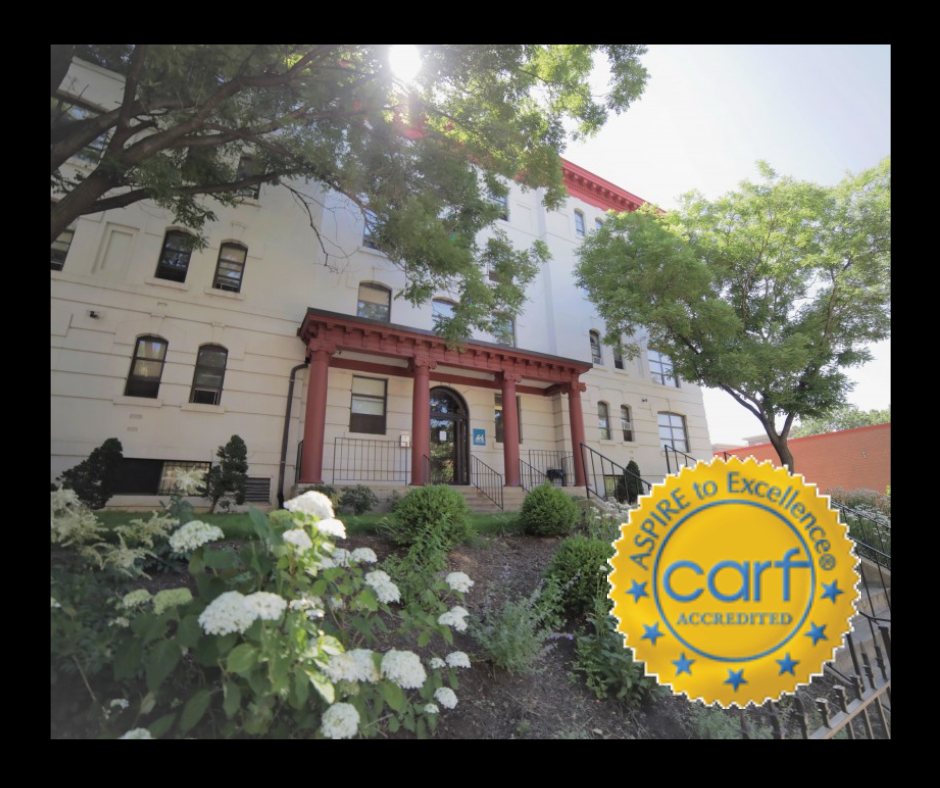The Benefits of Residential Rehabilitation: A Cornerstone of Recovery at Samaritan Inns in Washington, DC
By Sonya Schweitzer
What is Residential Rehabilitation, and how does it compare to outpatient rehabilitation and Telemedicine?
Deciding between a residential rehabilitation program and outpatient care is essential to achieving lasting sobriety. Both pathways aim for rehabilitation, yet each presents distinct attributes and advantages. For individuals grappling with substance use disorder (SUD) and their loved ones, distinguishing between these treatment approaches is pivotal. Fully understanding the nuances of each option can set the foundation for long- term sobriety.
Residential rehabilitation involves admitting oneself into a monitored environment to address SUD, co-occurring mental health disorders, and associated challenges. Individuals receive round-the-clock medical and emotional support in a therapeutic residential setting.
Outpatient Rehabilitation and Tele-Medicine
Inpatient rehab facilitates complete immersion into the recovery process. Contrarily, outpatient rehab allows individuals to attend therapy during the day but return home in the evenings. While both offer potential pathways to recovery, the best approach hinges on an individual’s unique needs, which can be influenced by the severity of their addiction, among other factors.
Telemedicine, another emerging mode of treatment, leverages technology to render services remotely. Although Telemedicine holds potential, it can pose challenges, especially among the SUD population. As quoted from NIH.Gov:
Although there is ample evidence to support telemedical
interventions, these can be difficult to implement, especially in the SUD population.
Many consider the benefits of residential rehabilitation and include the option in their journey to recovery.
What are the Five benefits of residential rehabilitation?

- Detoxification and Withdrawal With Professional Support
The detox phase is known to be challenging and, in some cases, unsafe. However, within the supportive walls of residential rehabilitation, patients receive medical attention 24/7, ensuring safe and eased detox experiences. - Higher Rate of Detox Success
Resisting the pull of old habits becomes more manageable when one is not continuously exposed to them. Unlike outpatient programs where temptations are ever-present, residential rehab keeps triggers at bay, ensuring a focused journey to sobriety. - Staff Support and a Community of Peers
The presence of professional help around the clock and a community that shares the common goal of lifelong sobriety fosters a supportive environment. These bonds can be the cornerstone of one’s recovery. - Structured Schedule and Supervision
Benefits of residential rehabilitation include a tightly-knit schedule that keeps minds occupied and away from their substance of choice. Professionals monitor progress keenly, adapting treatments to the evolving needs of the individual. - Complete Focus on the Self and Recovery
With limited external distractions, individuals can channel all their energies into healing. Many facilities offer alternative therapies alongside traditional treatments, equipping patients with an arsenal of techniques to maintain sobriety in the outside world.
In embracing residential rehabilitation, one can find a haven where recovery isn’t just a goal—it’s a tangible, achievable reality.
Residential Rehabilitation with Samaritan Inns in Washington, DC
Samaritan Inns in Washington, DC, has been a beacon of hope for those battling addiction for over three decades. Our evidence-based three-phase approach has evolved to meet the needs of those we serve, with our Intensive Treatment Program serving as the cornerstone of our efforts.
This program, fully certified by the DC Department of Behavioral Health, extends an invitation to single adults aged 21 to 65. It’s a comprehensive residential treatment program instilling knowledge and tools essential for countering addictive behaviors. Through this program, participants familiarize themselves with the transformative 12-step Alcoholics/Narcotics Anonymous principles, benefit from individual and group therapy sessions, and receive dedicated case management.
The actual benefits of residential rehabilitation manifest here: under the guidance of our adept staff, individuals can revitalize their physical and mental health, embracing a balanced lifestyle. All our facilities exude tranquility, nestled within the Columbia Heights/Adams Morgan area of DC.
The 12 Steps, which lie at the heart of our program, offer a systematic approach to address alcoholism, drug addiction, and associated behavioral challenges.
In conclusion, the journey to sobriety is deeply personal and unique to each individual. The benefits of residential rehabilitation, especially at esteemed institutions like Samaritan Inns, offer a comprehensive, supportive environment conducive to long-lasting recovery. To learn more about Samaritan Inns, read about its recent CARF Accreditation, a commitment to excellence.
Share on Social
Recent Posts
Donate Today
Make a donation to help us sustain our mission and provide help
to those who need it in the Washington, DC area.

